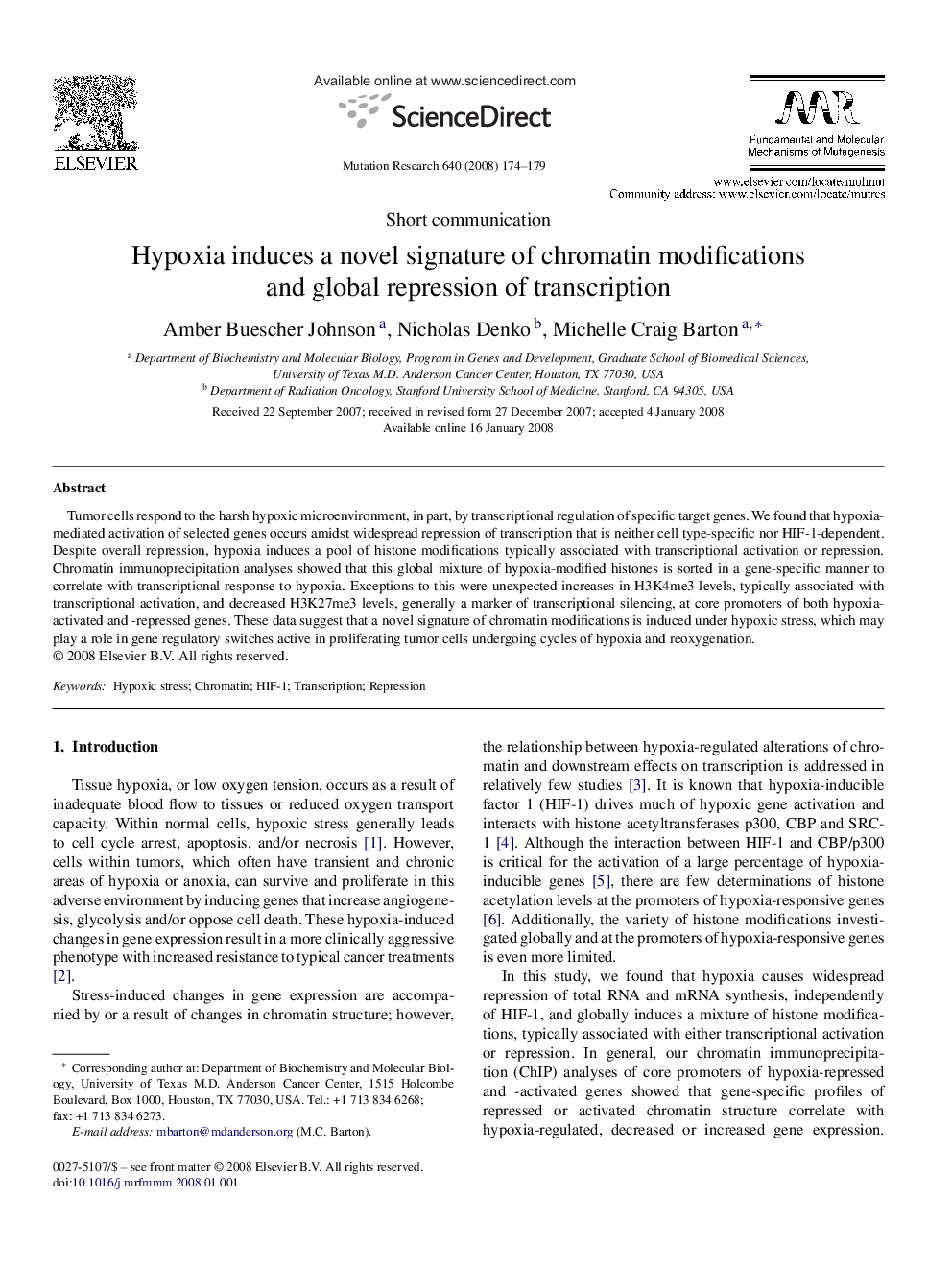| Article ID | Journal | Published Year | Pages | File Type |
|---|---|---|---|---|
| 8456163 | Mutation Research/Fundamental and Molecular Mechanisms of Mutagenesis | 2008 | 6 Pages |
Abstract
Tumor cells respond to the harsh hypoxic microenvironment, in part, by transcriptional regulation of specific target genes. We found that hypoxia-mediated activation of selected genes occurs amidst widespread repression of transcription that is neither cell type-specific nor HIF-1-dependent. Despite overall repression, hypoxia induces a pool of histone modifications typically associated with transcriptional activation or repression. Chromatin immunoprecipitation analyses showed that this global mixture of hypoxia-modified histones is sorted in a gene-specific manner to correlate with transcriptional response to hypoxia. Exceptions to this were unexpected increases in H3K4me3 levels, typically associated with transcriptional activation, and decreased H3K27me3 levels, generally a marker of transcriptional silencing, at core promoters of both hypoxia-activated and -repressed genes. These data suggest that a novel signature of chromatin modifications is induced under hypoxic stress, which may play a role in gene regulatory switches active in proliferating tumor cells undergoing cycles of hypoxia and reoxygenation.
Related Topics
Life Sciences
Biochemistry, Genetics and Molecular Biology
Cancer Research
Authors
Amber Buescher Johnson, Nicholas Denko, Michelle Craig Barton,
